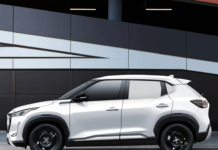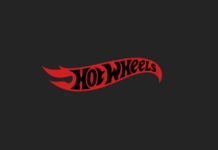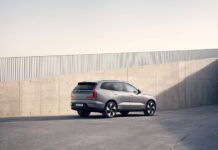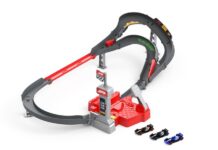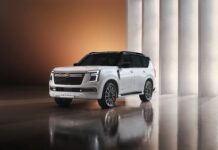Hyundai Automotive South Africa has expanded its popular i20 range with the addition of a new 1,4-litre engine derivative, fitted with an automatic gearbox and an attractive package of standard features.
The new i20 1.4 Motion Automatic, with a recommended retail price of R249 900, takes its slot in the middle of one of the bestselling model ranges in Hyundai’s local product line-up, and – as with the other i20 derivatives – comes with a comprehensive list of features.
The other derivatives are the i20 1.2 Motion and Fluid (both with a 5-speed manual gearbox); the i20 1.4 Fluid (with a 6-speed manual and 4-speed automatic gearbox respectively); and the i20 1.4 Sport with a 6-speed manual gearbox.
The fresh looks and neat design lines of Hyundai’s i20 hatchback model were introduced in the local market in 2015, and it has since been a backbone in Hyundai’s impressive sales that has earned it the 4thposition among automotive brands in South Africa.
“Customers are in for a surprise when they take the i20 for a test drive, because Hyundai’s engineers have created a fine car with solid, surefooted dynamics on the road,” says Oscar Makola, marketing director of Hyundai Automotive South Africa.
“The addition of the new i20 derivative creates another appealing option for the discerning buyer in this very competitive market segment.”
Engine and transmission
Power in the new i20 1.4 Motion comes from its Kappa 1,4 litre engine that delivers 74 kW at 6 000 r/min., with the torque output reaching its limit at 133 Nm, delivered at 3 500 r/min. Power is delivered to the front wheels through a 4-speed automatic gearbox.
The 1,4 litre engine delivered fuel consumption of 7,5 litres/100 km in a combined test cycle, and CO2emissions of 160 g/km.
Apart from its power source, the new i20 1.4 Motion derivative shares the specification level of its sibling in the i20 range, the i20 1.2 Motion manual, which is equipped with the smaller 1,2 litre engine that delivers maximum power of 61 kW at 4 000 r/min., and maximum torque of 115 Nm at 4 000 r/min.
Styling and design
The distinctive design of the i20 is a creation of Hyundai Motor’s Design Centre in Rüsselsheim, Germany, and was influenced by the latest interpretation of Hyundai Motor’s design philosophy, Fluidic Sculpture 2.0, with the clean and elegant lines giving it a sophisticated appearance.
The European team has created a bold front aesthetic with a distinctive dual-element grille. The upright chrome-framed hexagonal grille stretches down low for design and engineering purposes, while a thin, horizontal grille, connecting the headlamps, emphasises the width of the car. The wheel arches flow into the long hood, reinforcing the i20’s purposeful stance.
At the rear, the i20 features a wrap-around black C-pillar which gives the impression of a floating roofline. The feature line that runs the length of the vehicle connects at the rear – dropping subtly below the rear window to improve visibility. The lamp clusters wrap around the rear wing into thevtrunk lid and feature a “boomerang” LED design.
The purposeful appearance of the new i20 is emphasised by its long hood, low roofline and sharp crease line that combine to achieve a streamlined vehicle with an aerodynamic drag figure of 0,34 Cd.
The Hyundai i20 features a large tailgate for ease of loading into its generous boot space of 294 litres, with a convenient wide boot opening.
Comfort and convenience
With a large cabin and a generous list of standard technologies, the i20 offers a sophisticated and luxurious occupant environment.
Standard comfort features in the new i20 1.4 Motion (auto) derivative include:
- Audio system remote control buttons on the steering wheel;
- Height adjuster for the driver’s seat;
- Bluetooth hands-free setup for the audio system and for receiving cell phone calls;
- USB and AUX connectivity for the audio system, with a radio and CD player;
- A manual air-conditioner;
- A steering wheel that can adjust in height and reach (telescopic column);
- A sunglass holder in the centre roof console; and
- A remote-locking key.
The i20 offers combined front and rear legroom of 1 897 mm, a class-leading figure.
Front-seat occupants enjoy 1 027 mm headroom and 1 084 mm legroom. In the rear of the cabin, headroom of 968 mm, legroom of 813 mm and shoulder room of 1 350 mm allow three adults to be seated in comfort.
The i20 is also one of the most accommodating in the segment with a trunk volume of 294 litres with the rear seats upright. The rear bench can fold fully flat, boosting trunk capacity to 1 010 litres. The rear seats can also fold flat in a 60:40 split.
Hyundai Motor’s engineers and designers have selected high-quality, high-durability materials to ensure the cabin provides lasting comfort and good looks. On many of the cabin’s key surfaces a high-grade, highly durable Thermal Plastic Olefin (TPO) material has been applied, including on the vehicle’s dashboard and door trims.
The i20 has been developed using lightweight, high-strength steel to yield stiffer torsional rigidity. The result is outstanding ride quality, reduction in core weight and gains in damping to mitigate noise, vibration and harshness (NVH). Throughout the i20, Hyundai engineers have applied technologies aimed at reducing the intrusion of noise and vibration to the cabin.
Running gear
The i20 rides on fully independent MacPherson strut suspension at the front and a semi-independent coupled torsion beam axle at the rear.
A motor-driven power steering (MDPS) system delivers great accuracy with 2,7 turns lock-to-lock for a 5,1m turning radius – making the car easy to navigate around the urban environment.
Safety
At the core of the i20, safeguarding above-average impact resistance, is the strong chassis and body shell, which benefits from the extensive use of advanced high-strength steel.
Every i20 model is fitted, as standard, with a 4-wheel electronic 4-channel Anti-lock Brake System (ABS), as well as Electronic Brake Force Distribution (EBD). Ventilated disc brakes are used on the front wheels, while the rear wheels are equipped with solid discs for the brakes.
The i20 1.4 Motion auto features passive safety equipment to protect occupants, including a driver and front passenger airbag, with front and rear seatbelt pre-tensioners and a lap belt for the middle passenger in the rear. The height-adjustable head restraints provide protection against whiplash.
Pricing
The prices of the i20 model range are:
i20 1.2 Motion (manual) R224 900
i20 1.2 Fluid (manual) R236 900
i20 1.4 Motion (automatic) R249 900
i20 1.4 Fluid (manual) R256 900
i20 1.4 Fluid (automatic) R274 900
i20 1.4 Sport (manual) R292 900
- Hyundai’s Roadside Assistance for 5 years or 150 000 km is a standard inclusion in all the i20 packages, as well as the industry-leading Hyundai 7 year or 200 000 km warranty.
- A 2 year or 30 000 km Service Plan is included in the i20 1.2 Motion and Fluid’s prices, while the i20 1.4 Motion and Fluid derivatives include a 3 year or 60 000 km Service Plan.






